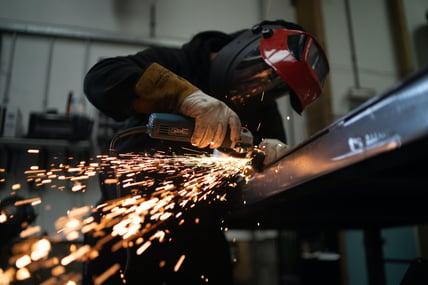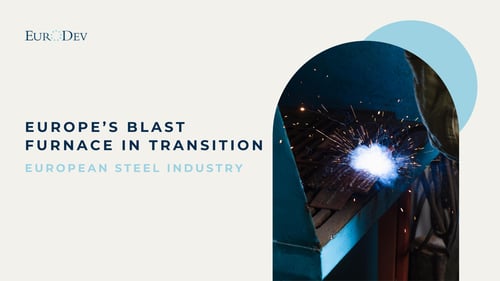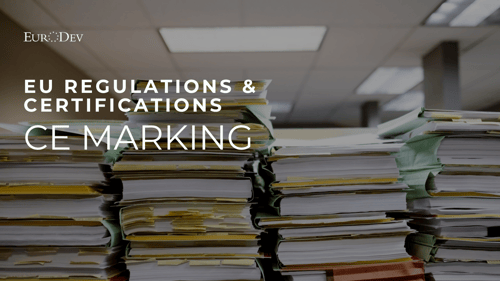Manufacturers & The EU Initiative to Cut Down on Russian Fossil Fuels
On 8 March 2022, the Commission proposed the outline of a plan to make Europe independent from Russian fossil fuels before 2030, in light of Russia's invasion of Ukraine. In May this year, The European Commission presented the REPowerEU Plan. The main focus of the plan is to offer a response to the challenges and to the global energy market discord caused by Russia's invasion of Ukraine taking into consideration the double urgency of transforming Europe's energy system to reduce dependence on Russian fossil fuels, which are used as an economic and political weapon and cost European taxpayers nearly €100 billion per year, and solving the long-time problem of tackling the climate crisis.
How Will The REPowerEU Plan Save Energy?
The Commission acknowledged that Russia's invasion of Ukraine has had a global impact on energy markets, affecting in particular developing partner countries, and proposed to enhance long-term energy efficiency measures to prepare for the potential challenges of the upcoming winter. From supporting short-term behavioral changes through the ‘EU Save Energy Communication' that encourages the Member States to start specific communication campaigns targeting households and industry, to the use of fiscal measures to encourage energy savings, such as reduced VAT rates on energy-efficient heating systems, building insulation and appliances and products.
Diversifying Supplies and Supporting International partners
Since March this year the EU has secured record levels of LNG imports and higher pipeline gas deliveries in a relatively short time frame with the hopes that the newly created EU Energy Platform, supported by regional task forces, will enable voluntary common purchases of gas, LNG, and hydrogen by pooling demand, optimizing infrastructure use and coordinating outreach to suppliers.
In line with the Global Gateway, the Strategy prioritizes the EU's commitment to the global green and just energy transition, while in the months to come the Commission will consider developing a ‘joint purchasing mechanism' which will negotiate and contract gas purchases on behalf of participating Member States, similarly to the joint project of purchasing vaccines during the high of the COVID-19 crisis with consideration to the legislative measures that are necessary to spread the gas supply equally over time by the Member States. The Platform will also enable joint purchasing of renewable hydrogen.
Reducing fossil fuel consumption in industry and transport
The European Commission concluded that replacing coal, oil, and natural gas in industrial processes is necessary to reduce greenhouse gas emissions and strengthen security and competitiveness. With that in mind, the Commission proposed a massive scaling-up and speeding-up of renewable energy in power generation, industry, buildings, and transport will accelerate our independence, give a boost to the green transition, and reduce prices over time. To support that statement the Commission will roll out carbon contracts for difference to support the uptake of green hydrogen by industry and specific financing for REPowerEU under the Innovation Fund with special guidance on renewable energy and power purchase agreements.

The Commission proposed to establish an EU Solar Industry Alliance and large-scale skills partnership to maintain and regain technological and industrial leadership in areas such as solar and hydrogen, and to support the workforce. The EU Save Energy Communication also includes many recommendations to cities, regions, and national authorities that can effectively contribute to the substitution of fossil fuels in the transport sector.
The Future of Manufacturing in Europe Under New Conditions
The use of gas per employee is particularly high in the manufacturing of coke and refined petroleum products, chemicals and chemical products, basic metals, paper, and paper products, and non-metallic minerals. Across Europe, the highest employment shares in gas-intensive sectors are concentrated in Central European countries, notably Poland, the Czech Republic, Slovakia, Austria, Slovenia, Sweden, Finland, and Northern Italy. All of these countries will require policies that are tailored to the local context not only when it comes to energy sufficiency but also employment policies. Industries can adjust to high natural gas prices in three main ways: Firms may choose to absorb the higher costs, increase output prices, or lower their dependence on natural gas by increasing efficiency or changing energy sources.
The short-term possibilities between energy security and net-zero emission exist, however using coal in production hasn't proven to be a viable solution. The long-term road to both reducing dependancy and tackling the climate crisis is through renewable energies.
Interested to learn more about your company's potential to expand into the European HVAC market? Feel free to schedule a meeting with us and we will be more than happy to guide you through your European expansion.
Sources: The European Commission, OECD, Energy Transition Commission
Category
Related articles
-

Beyond the Blast: Europe’s Furnace Transition
25 January 2024This article will explain why the blast furnace is now subject to a makeover, and what this...
Read more -

Navigating the Maze: European Regulations (Part II)
8 January 2024In this article, we will dive more specified into the Essential certifications for product that...
Read more -

Navigating the Maze: European Regulations and Certifications
8 January 2024Today we will take you through the vital certifications and regulations companies must comply with...
Read more

